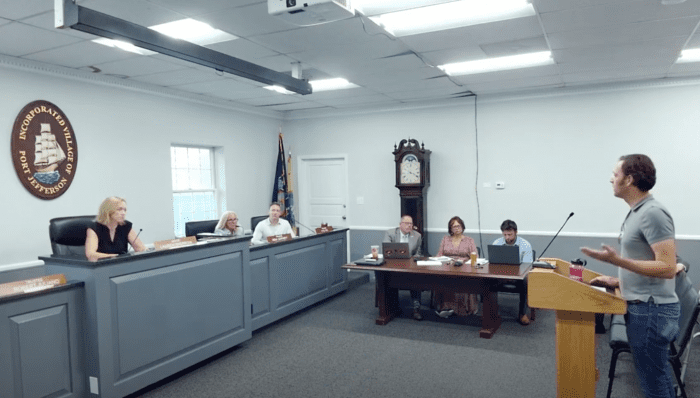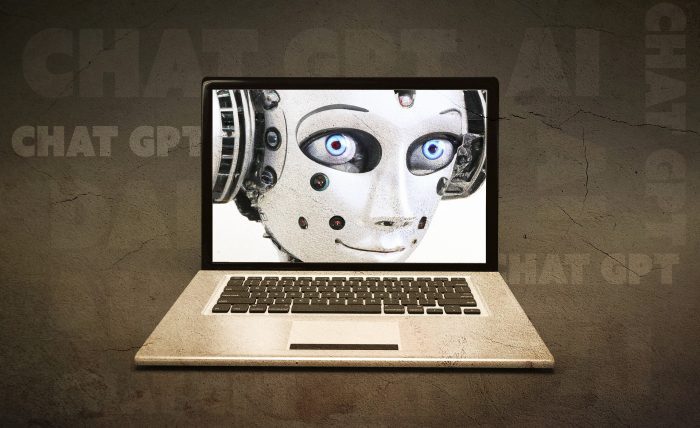By Lynn Hallarman
Andrew Thomas, architectural designer and village resident, made his case to remain as a member of the Village of Port Jefferson Zoning Board of Appeals at the Board of Trustees meeting July 31.
Having served on the ZBA since 2014 and the Architectural Review Committee since 2020, Thomas highlighted his experience in a detailed statement. Thomas is the husband of former village trustee Rebecca Kassay, now Democratic candidate for the state Assembly District 4.
Despite his efforts, trustees voted 3-1 in a resolution to “fill the vacant position under which Thomas was serving in a holdover capacity.” He was replaced with real estate agent and ZBA alternate member, Alexia Poulos. Trustee Kyle Hill cast the dissenting vote, while trustee Stan Loucks was absent.
Addressing prior concerns about possible conflict of interest from his dual roles on the ZBA and ARC, Thomas offered several solutions to the board including withdrawing from the ARC or recusing himself from certain matters. He stated that legal counsel from the New York Conference of Mayors indicated no conflict exists.
Zoning procedures
Zoning is the process by which a municipality is divided into separate districts or zones. The goal is to avoid incompatible land uses, like a car wash being built in a residential area. If an applicant, such as the builder of a car wash, is dissatisfied with the zoning regulations, a petition can be lodged with the ZBA for a variance. The ZBA then decides whether to grant or deny this request.
Holdover status
According to the July 1 organizational minutes of the Board of Trustees, Thomas, along with another ZBA member and three members of the Planning Board are currently in “holdover” status, with terms that have expired as far back as 2022.
Additionally, a total of 17 volunteer members across several different committees and advisory councils have also been identified in the minutes as serving in holdover status due to expired terms.
Holdover status occurs when a volunteer member continues to serve after their official term has expired, ensuring that the board, committee or council remains functional. Volunteers in holdover status can be reappointed or replaced by a governing body such as the Board of Trustees according to New York State Public Officers Law.
When a ZBA member is in holdover status, the Board of Trustees can replace that member without a formal public hearing. This is an exception to New York State law, which mandates a public hearing when a member is being removed “for cause,” such as meeting absences or ethics violations.
Thomas underscored the importance of the ZBA’s independence from political influence and called for the reappointment of all holdover members to restore proper procedure. He concluded by requesting continued service, stressing the importance of “experience, continuity and public trust” in the board’s functions.
“I understand how directly and even emotionally land use decisions can affect individual citizens. It is one of our most direct and meaningful interactions with government and it requires great care and respect,” Thomas said in his statement.
Mayor Lauren Sheprow in an email to TBR stated that “we have recently discovered a comprehensive and consistent lack of timely and accurate recordkeeping of our land use board members by prior administrations over the years, resulting in term start and end dates that are not verifiable.”
She added, “We are diligently working to bring all boards, committees and councils into compliance with NYS Village Law if they are not.”
The Board of Trustees will hold a work session Aug. 14. The next trustees board meeting open for public comment will be held Aug. 28.







